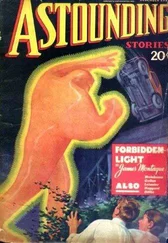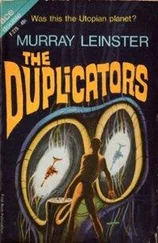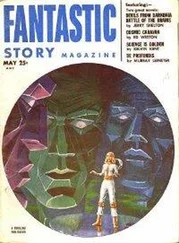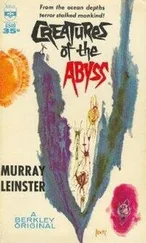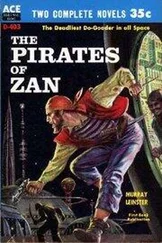Murray Leinster - War with the Gizmos
Здесь есть возможность читать онлайн «Murray Leinster - War with the Gizmos» весь текст электронной книги совершенно бесплатно (целиком полную версию без сокращений). В некоторых случаях можно слушать аудио, скачать через торрент в формате fb2 и присутствует краткое содержание. Год выпуска: 1958, Издательство: Fawcett Gold Medal, Жанр: Фантастика и фэнтези, на английском языке. Описание произведения, (предисловие) а так же отзывы посетителей доступны на портале библиотеки ЛибКат.
- Название:War with the Gizmos
- Автор:
- Издательство:Fawcett Gold Medal
- Жанр:
- Год:1958
- ISBN:нет данных
- Рейтинг книги:5 / 5. Голосов: 1
-
Избранное:Добавить в избранное
- Отзывы:
-
Ваша оценка:
- 100
- 1
- 2
- 3
- 4
- 5
War with the Gizmos: краткое содержание, описание и аннотация
Предлагаем к чтению аннотацию, описание, краткое содержание или предисловие (зависит от того, что написал сам автор книги «War with the Gizmos»). Если вы не нашли необходимую информацию о книге — напишите в комментариях, мы постараемся отыскать её.
War with the Gizmos — читать онлайн бесплатно полную книгу (весь текст) целиком
Ниже представлен текст книги, разбитый по страницам. Система сохранения места последней прочитанной страницы, позволяет с удобством читать онлайн бесплатно книгу «War with the Gizmos», без необходимости каждый раз заново искать на чём Вы остановились. Поставьте закладку, и сможете в любой момент перейти на страницу, на которой закончили чтение.
Интервал:
Закладка:
War with the Gizmos
by Murray Leinster
PROLOGUE
The first battles of the war with the Gizmos took place in deep wilderness, and human beings knew nothing about them. Cities were not attacked, in the beginning. The initial skirmishes were fought by bears and wildcats and mountain sheep, and other creatures blood-kin to men. Those battles were often magnificent, but they were usually disastrous, and few of them were ever reported.
There was, though, a bear found dead in the high Sierras, killed after a fight of epic proportions, as was shown by torn-up earth and crushed brushwood and toppled saplings. There was a mountain lion found slain in Colorado after no less desperate a conflict. A slaughtered wildcat’s furious struggle for life was noted in northern Michigan, where the signs of the conflict were clear. And a fisherman on a stream in Pennsylvania saw the death of a four-point buck. It fought with splendid courage. It used horns and hoofs and pure desperation against an invisible antagonist, but it finally sank to the ground and died while the angler looked on, appalled and unbelieving.
These were battles with Gizmos. The signs were unmistakable. The dead creatures had not a wound or a mark upon them. The battlegrounds showed plainly their tracks, but no trace of a thing or things with which they had fought. In one case, as was noted, a man saw the fighting, but he didn’t see the buck’s antagonist. He only saw that the buck deer died. Its murderer could not possibly have been anything but a Gizmo.
There is no point, now, in reviewing the controversy about the Gizmos’ origin. Some still insist that they came from outer space. This is hard to believe, because a spaceship under Gizmo control is almost impossible to imagine. Some authorities consider that Gizmos are native to Earth. They point to primitive fears of evil spirits as proof of their presence on Earth since time beyond remembering. But the objection to this is that primitive man could not have survived had he been attacked by the Gizmos who made war on us. In effect this argument is that since our ancestors were not exterminated by Gizmos, there were no Gizmos in ancient days. Yet the legends of fiends and djinns and efrits and ghuls , and of eerie inhabitants of remote, are singularly convincing when one considers them in connection with Gizmos.
In any case the Gizmos seemed to appear with the suddenness of a thunderclap. They had the enormous advantage of being totally unreasonable. These days we believe only in highly scientific things. Highly scientific opinions change continually, and so do the things we believe in. But Gizmos were not flesh and blood, and therefore not scientific, so we would not notice such signs of their presence as must have existed before the war. However they appeared, they were able to marshall their forces without interference; they established bases in our forests, pickets in our woodlots, and observation posts in the parks of towns and cities. Gizmo patrols moved wherever they pleased without anybody crediting their reality—even when they committed atrocities. They had every possible advantage in their preparations for war.
In military terms they secured almost complete surprise. Apart from atrocity reports there is no evidence that anybody noticed anything the Gizmos did not want noticed. Even the word “Gizmo” was a slang term applied to blips on radar screens for which no cause could be established. We knew that these blips were not caused by solid objects; we also knew that the blips moved independently of the wind. Some radar stations observed many of them, and others very few. There was a flying-saucer scare, once, when six unidentified flying objects were reported over Washington, D.C. Armed forces radar stations admitted reluctantly that they had been detected. But, said the armed forces, they were only Gizmos. It was guessed that they were areas of excessive ionization in the air, of no importance.
This was the error of the century, but a very natural one. A Gizmo had been spotted by radar over a flying field in Texas. It hung stationary over the center of the installation at fifteen hundred feet, as if leisurely surveying the activities below. Nothing was visible where the radar insisted the Gizmo was. A plane took off and, guided by instructions from the ground, dived squarely through the space occupied by the Gizmo. Neither the plane nor its pilot detected anything at the moment of impact. The Gizmo vanished. After that, it seemed reasonable to disregard Gizmos altogether, which was a catastrophic blunder.
Chapter 1
Dick Lane was the first man to be attacked by Gizmos—it was undoubtedly a small patrol of them—and to live to tell about it in intelligible terms. It happened one day when he trudged a dim trail through mixed mountain laurel and oaks and pine trees on the downward slope of a mountain nobody had ever bothered to name. This was in the mountains of western Virginia, some ten miles from Murfree’s courthouse. He’d been in other places on his present errand, and his bafflement had been as great as it was here, which meant that his frustration was complete. He’d been tracking down the stories of inexplicable deaths of game animals, and some suspected deaths of men. He’d learned nothing tangible. He had dark suspicions, but nothing to justify them, and on this hot summer afternoon he was discouraged, uneasy and depressed.
To a sportsman, and especially a professional writer about field sports, as Lane was, the matter was important; to the rest of the world it was not. But fishermen and hunters made much of good hunting dogs who’d gone apparently crazy and fought empty air, snapping at it while screaming horribly. Most of them died. And there was a pheasant hunter in New Jersey, last fall, who was found dead beside his dead dog in the center of a patch of brush that had been leveled in some sort of frenzy. Neither man nor dog had a single wound of any sort. There were four fishermen found in the Dakotas, alleged to have died of poisoned mushrooms gathered in the wilds. But at least one of the four loathed mushrooms; he wouldn’t have tasted them. And there were cases of experienced guides, scouting the prospects for next-season hunting, who did not return from territory that was wholly familiar to them. One or two were found dead in their scattered blankets, by the ashes of dead fires; others were not found at all. And there were many tales of game animals found dead with the signs of battle all about them. Something unknown was taking toll of game and men.
It was Lane’s profession to go to places where there was good hunting and fishing, and then write articles about it, mostly for the magazine Forest and Field. Before this recent spate of murders in the wilderness, it had been a pleasant one. But Lane was a sportsman before he was a writer, and he was upset by the wanton killing of game—not killing for food, but scornfully leaving the murdered creatures to rot after they had defended themselves gallantly. Forest and Field had taken note of the matter. It was a sportsman’s magazine only, so it was not moved by reports of a ten-year-old boy’s having been found suffocated in Euclid Park, in Cleveland, and of the death of two children picking blackberries on the outskirts of Englewood, New Jersey, and of an elderly couple’s having been found dead in an open car near Sarasota, Florida. These human deaths seemed accidents. Nobody connected them with a common cause. It was Lane and his fellow sportsman who insisted that what was happening to wild creatures and good hunting dogs needed looking into. As a public service, Forest and Field had commissioned Lane to find out what was going on. He’d been at it for months, now, with no results—not even credible suspicions.
Читать дальшеИнтервал:
Закладка:
Похожие книги на «War with the Gizmos»
Представляем Вашему вниманию похожие книги на «War with the Gizmos» списком для выбора. Мы отобрали схожую по названию и смыслу литературу в надежде предоставить читателям больше вариантов отыскать новые, интересные, ещё непрочитанные произведения.
Обсуждение, отзывы о книге «War with the Gizmos» и просто собственные мнения читателей. Оставьте ваши комментарии, напишите, что Вы думаете о произведении, его смысле или главных героях. Укажите что конкретно понравилось, а что нет, и почему Вы так считаете.



